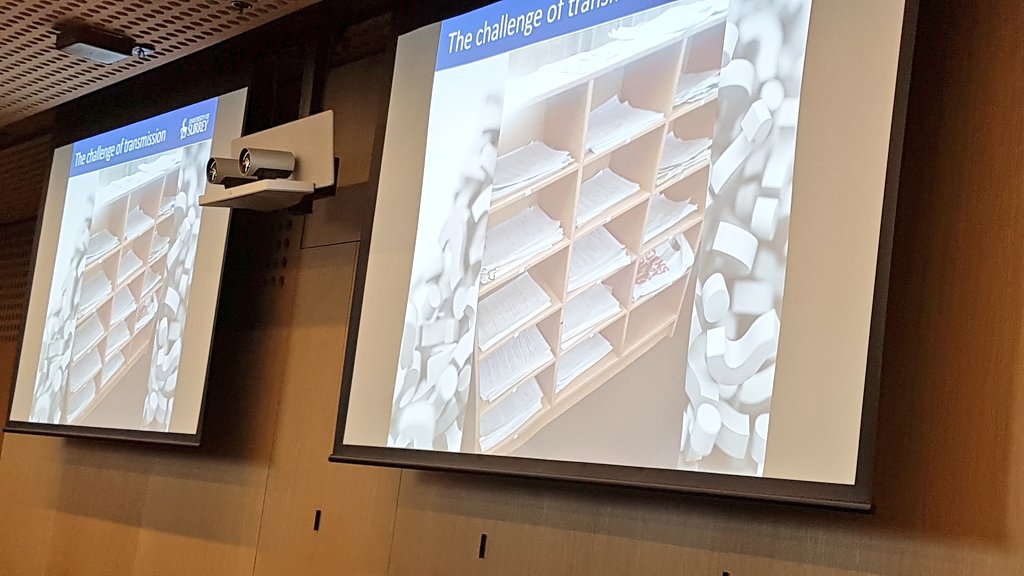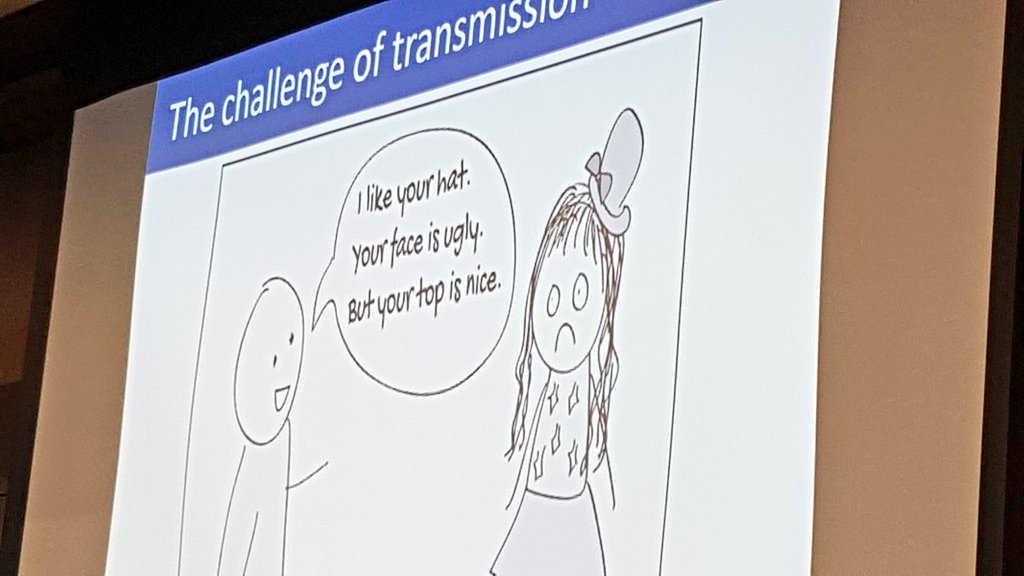& #39;Providing comments& #39; to students who & #39;receive them& #39;: @DocWinstone on the dominance of transition- focused language and processes in #HigherEd feedback practice at @Deakin& #39;s #DeakinLT2019 conference... (1 of ??)
This & #39;feedback graveyard& #39; looks eerily familiar to what I saw years ago as a sessional tutor when a large number of students never picked up their marked assignments at the end of a semester. The faculty office looked *exactly* like this each and every time...
Love the critique of the & #39;feedback sandwich& #39; - and not just because of this entertaining image!  https://abs.twimg.com/emoji/v2/... draggable="false" alt="😄" title="Smiling face with open mouth and smiling eyes" aria-label="Emoji: Smiling face with open mouth and smiling eyes"> The sandwich might make things taste nicer, but it doesn& #39;t in itself lead to better feedback and learning.
https://abs.twimg.com/emoji/v2/... draggable="false" alt="😄" title="Smiling face with open mouth and smiling eyes" aria-label="Emoji: Smiling face with open mouth and smiling eyes"> The sandwich might make things taste nicer, but it doesn& #39;t in itself lead to better feedback and learning.
Emotion management also key to feedback: @DocWinstone makes a clear case for not trying to avoid emotion, but to help students learn how to harness and use it.
& #39;Credibility& #39; and & #39;authenticity& #39;: some terms popping up here may well suggest social media performances can offer us a lot of value in working out effective feedback practices that will be perceived as & #39;authentic& #39;...
Storytelling might also play an important role in helping students engage with feedback and the challenges of receiving it. No teacher lacks these stories, so *vulnerability* works both ways here...
Awesome question from @DocWinstone: How can feedback be *collated* to form an ongoing feedback conversation, rather than a fragmented series of comments not necessarily engaged with closely or at all? (paraphrased)
A major aspect of feedback literacy I would add is the need to motivate students to care about the feedback. Affect plays a crucial role in personalising feedback in a way that might help ensure it is used. New technologues can help in this too...
Thanks for a really compelling presentation @DocWinstone - lots of terrific work you& #39;ve been up to!!  https://abs.twimg.com/emoji/v2/... draggable="false" alt="😀" title="Grinning face" aria-label="Emoji: Grinning face">
https://abs.twimg.com/emoji/v2/... draggable="false" alt="😀" title="Grinning face" aria-label="Emoji: Grinning face">

 Read on Twitter
Read on Twitter

 The sandwich might make things taste nicer, but it doesn& #39;t in itself lead to better feedback and learning." title="Love the critique of the & #39;feedback sandwich& #39; - and not just because of this entertaining image! https://abs.twimg.com/emoji/v2/... draggable="false" alt="😄" title="Smiling face with open mouth and smiling eyes" aria-label="Emoji: Smiling face with open mouth and smiling eyes"> The sandwich might make things taste nicer, but it doesn& #39;t in itself lead to better feedback and learning." class="img-responsive" style="max-width:100%;"/>
The sandwich might make things taste nicer, but it doesn& #39;t in itself lead to better feedback and learning." title="Love the critique of the & #39;feedback sandwich& #39; - and not just because of this entertaining image! https://abs.twimg.com/emoji/v2/... draggable="false" alt="😄" title="Smiling face with open mouth and smiling eyes" aria-label="Emoji: Smiling face with open mouth and smiling eyes"> The sandwich might make things taste nicer, but it doesn& #39;t in itself lead to better feedback and learning." class="img-responsive" style="max-width:100%;"/>


